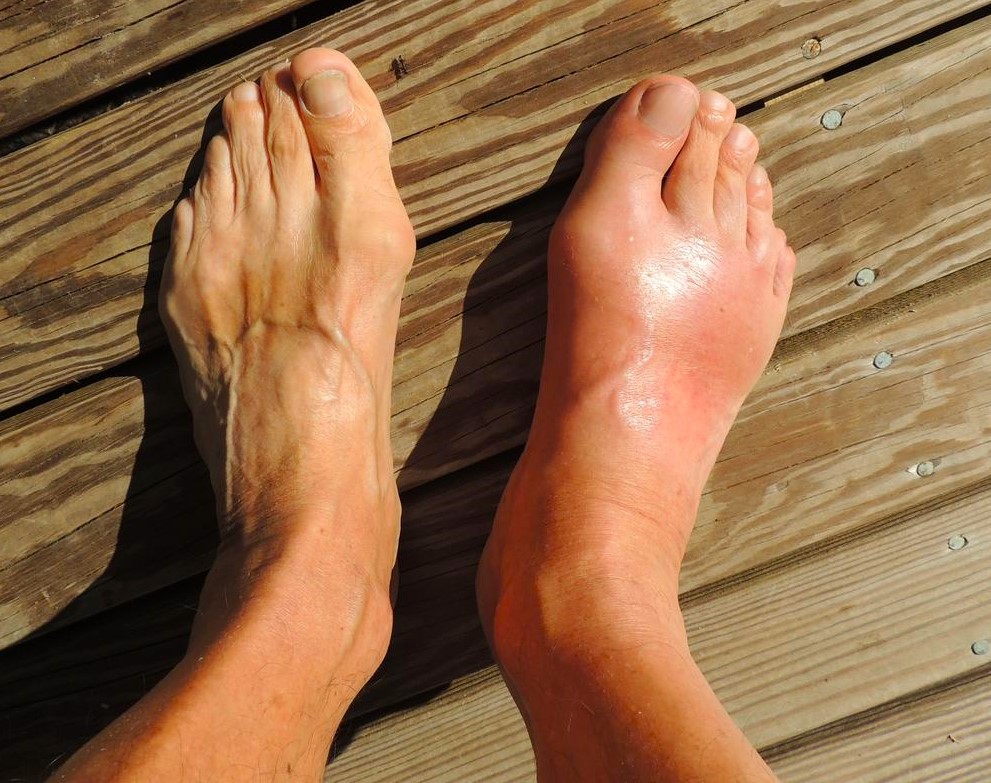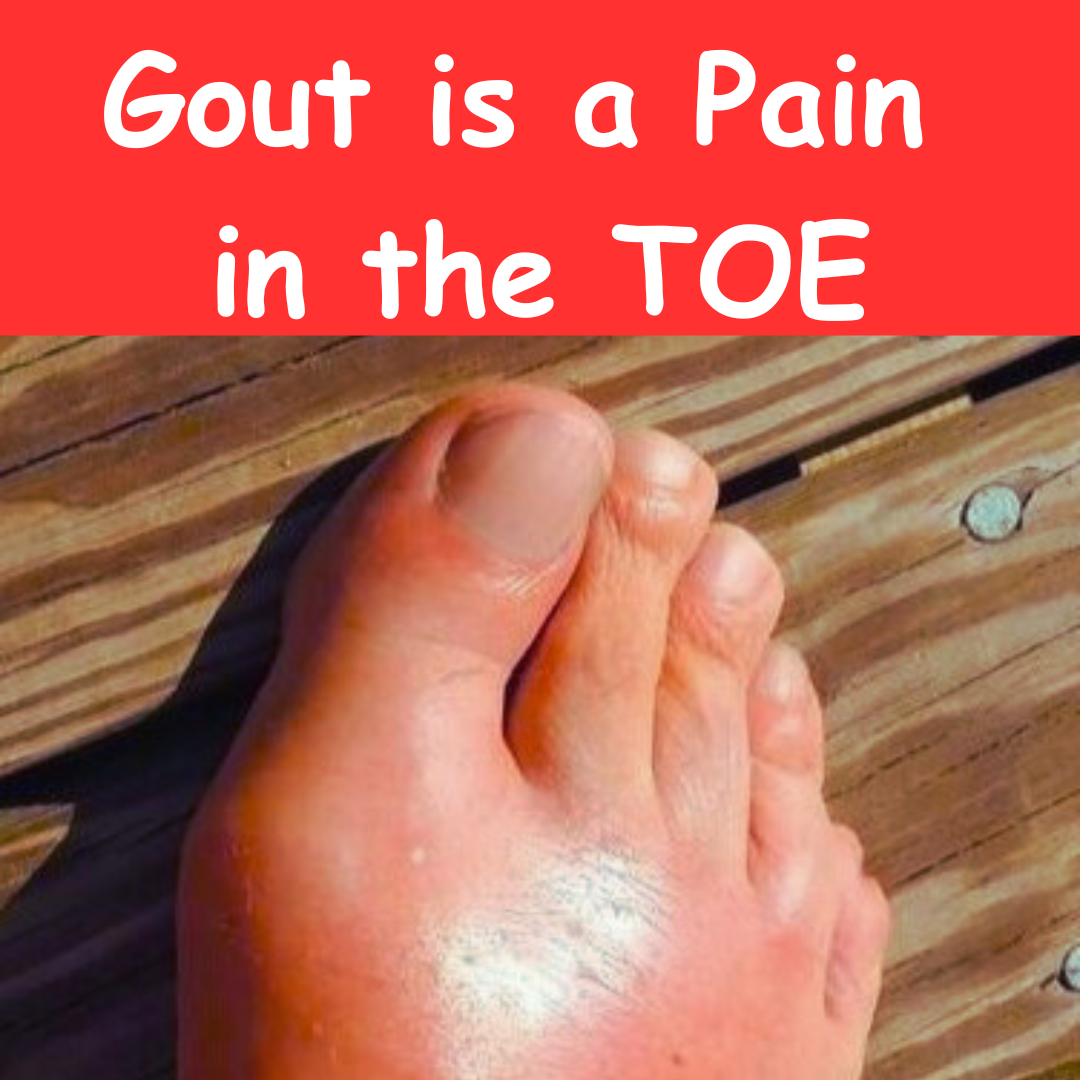Maybe you have heard someone complain about gout, or perhaps you are feeling pain in your toe and are wondering – What is gout?
Gout is a common form of arthritis in which small crystals form inside and around the joints.
During a flare-up people with gout experience a sudden attack of swelling and severe pain. Gout usually affects one joint at a time, typically in your big toe.
What Causes Gout
Gout is a condition (hyperuricemia) caused by a build-up of uric acid in your body. If your body produces too much uric acid, and your kidneys can’t filter enough out, small sharp crystals known as monosodium urate can build up in your joints, fluids, and tissues. These crystals can cause severe pain and swelling in your joint.
Risk Factors for Gout
The following can increase your risk of getting gout:
- High Blood Pressure
- Diabetes
- Obesity
- Congestive heart failure
- Use of certain medications such as diuretics
- A family history of gout
- Alcohol consumption. The more you drink, the higher the risk.
- Drinks that are high in fructose, or purine-rich foods that may cause a build-up of uric acid such as red meat, organ meat, and some types of seafood including mussels, trout, scallops, anchovies, or tuna.

Symptoms of Gout
For those suffering from gout, flare-ups can last days or even weeks. Following a flare-up of gout, most patients experience long periods of remission, symptom-free, lasting anywhere from weeks to years. In addition to the big toe, joints that can be affected by gout are in your smaller toes, ankle, fingers, and possibly your knee. Signs that a joint is affected by gout include:
- Pain
- Redness
- Hot and tender joint
- Swelling
When to see your Family Doctor
If you are concerned about having gout and haven’t been diagnosed, see your family doctor. It’s important to confirm your diagnosis because symptoms of gout can be similar to symptoms of other inflammatory diseases that may need to be treated more urgently. If necessary, your primary care doctor will refer you to a rheumatologist, a doctor who specializes in gout and other forms of arthritis. After a rheumatologist has diagnosed and prescribed proper treatment, your family doctor can track your gout and help you manage it.
How Gout is Managed
Gout is considered a chronic disease that currently has no cure. However, gout can be effectively treated and managed with medications, lifestyle changes, and symptom management strategies.
For people with frequent gout flare-ups, doctors may prescribe medications such as febuxostat, allopurinol, or pegloticase to help lower uric acid levels in your blood.

Making some lifestyle changes can help to prevent future flare-ups of gout. Eating a healthy diet, limiting alcohol and purine-rich foods, and losing weight are some of the lifestyle choices you can make to help self-manage your gout.
Gout is the most common form of inflammatory arthritis. It comes in sudden and intense attacks of joint pain typically in the big toe and often at night. If you suspect you have gout or are concerned about signs of inflammation, contact the caring professionals at River Bend Medical Associates for an appointment today. Our team is committed to delivering compassionate health care for our patients. As part of your medical team, we are here to provide you with the best care in all aspects of your healthcare needs. For more information on our medical practice, or to make an appointment contact River Bend Medical Associates, or call 916-392-4000.


